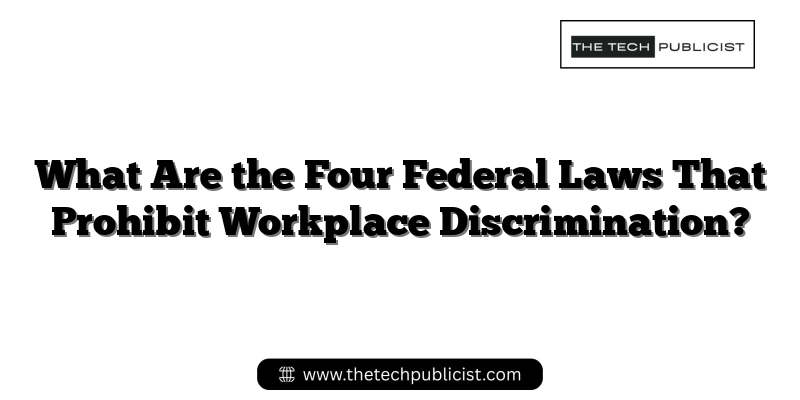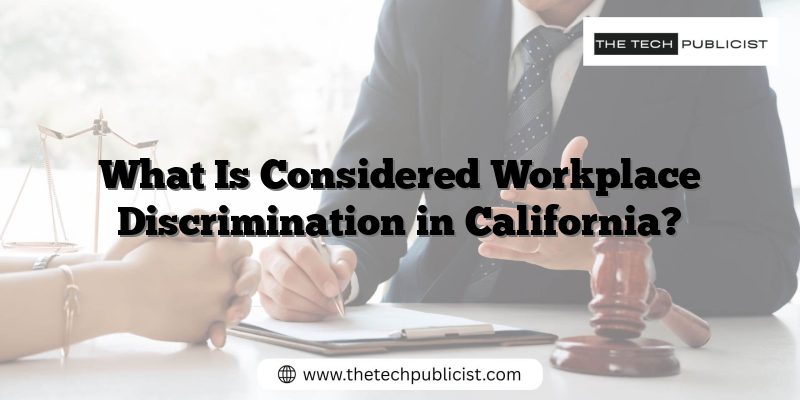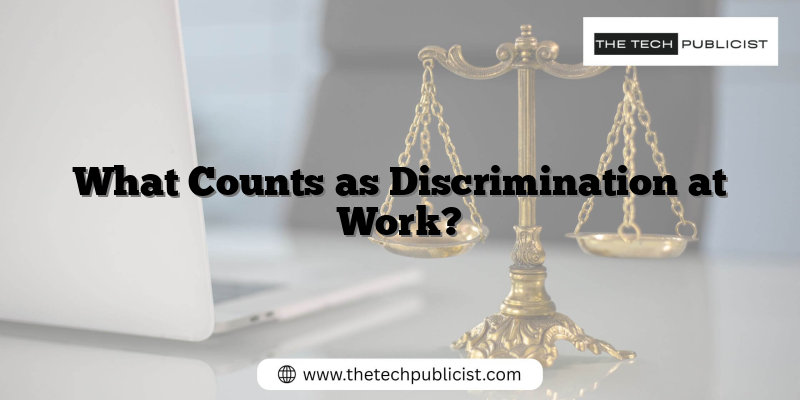What to Know – Key Takeaways
- Four primary federal laws safeguard against workplace discrimination: Title VII of the Civil Rights Act, the Age Discrimination in Employment Act, the Americans with Disabilities Act, and the Equal Pay Act.
- These laws ensure that individuals are protected from discrimination based on race, color, religion, sex, national origin, age, disability, and gender.
- Understanding these laws is crucial for both employees and employers to foster a fair workplace environment and avoid legal repercussions.
- Employees who believe they have been discriminated against can file complaints with the Equal Employment Opportunity Commission (EEOC).
Understanding Federal Laws Against Workplace Discrimination
Discrimination in the workplace can take many forms, and understanding the federal laws designed to combat it is essential for both employees and employers. This blog post will delve into the four key federal laws that prohibit workplace discrimination, examining their scopes, requirements, and implications.
Title VII of the Civil Rights Act of 1964
Title VII is a cornerstone of workplace discrimination law. It prohibits employment discrimination based on race, color, religion, sex, and national origin.
Scope of Title VII
- Protected Classes: Title VII protects individuals from discrimination based on their identity. This includes racial minorities, women, and individuals from various religious backgrounds.
- Employer Obligations: Employers are required to provide a discriminatory-free environment. This includes hiring, firing, promotions, pay, and all other terms or conditions of employment.
Age Discrimination in Employment Act (ADEA)
The Age Discrimination in Employment Act, enacted in 1967, prohibits employment discrimination against individuals 40 years of age or older.
Key Features of ADEA
- Employment Decisions: The ADEA addresses various aspects of employment, including hiring practices and layoffs.
- Enforcement: Complaints regarding age discrimination can also be filed with the EEOC, helping to ensure compliance.
Americans with Disabilities Act (ADA)
The Americans with Disabilities Act, passed in 1990, aims to prevent discrimination against individuals with disabilities in all areas of public life, including jobs.
Provisions of the ADA
- Definition of Disability: The ADA defines disability as a physical or mental impairment that substantially limits one or more major life activities.
- Reasonable Accommodations: Employers are required to provide reasonable accommodations unless doing so would cause undue hardship.
Equal Pay Act of 1963
The Equal Pay Act mandates equal pay for men and women who perform equal work in the same establishment.
Key Aspects of the Equal Pay Act
- Wage Disparities: The law aims to eliminate wage disparities based on sex.
- Comparison: Jobs do not have to be identical but must require substantially equal skill, effort, and responsibility.
Implications for Employers and Employees
Understanding these laws is essential for fostering a workplace that promotes equality and diversity. Employers who fail to adhere to these laws may face significant legal consequences, while employees should be aware of their rights.
Consequences of Non-Compliance
Employers might face lawsuits, fines, or mandated changes to policies and practices if they violate these laws.
The Role of the EEOC
The Equal Employment Opportunity Commission is a federal agency that enforces these laws. Employees who believe they have experienced discrimination can file a complaint, which can prompt an investigation.
FAQs
What is workplace discrimination?
Workplace discrimination occurs when an employee faces unfair treatment based on characteristics such as race, age, or disability.
How can I report workplace discrimination?
Employees can report workplace discrimination by filing a complaint with the Equal Employment Opportunity Commission (EEOC).
What protections do I have if I am over 40?
The Age Discrimination in Employment Act offers protection against discrimination for individuals aged 40 and older in the workplace.
Can I sue my employer for discrimination?
Yes, employees can sue their employers for discrimination, but they generally need to file a complaint with the EEOC first.
Conclusion
Understanding the four key federal laws that prohibit workplace discrimination is crucial for both employees and employers. These laws provide a framework for a fair and equitable workplace, while also obligating employers to maintain respectful employment practices.
If you have further questions or need legal assistance regarding workplace discrimination, don’t hesitate to contact a local law firm that specializes in employment law. Protecting your rights is paramount.
For more in-depth information on workplace discrimination laws, visit the U.S. Equal Employment Opportunity Commission (EEOC) and explore resources on workplace protections from the U.S. Department of Labor.

Manali is the founder and editor of The Tech Publicist, a legal-focused blog dedicated to breaking down complex legal topics into plain, practical advice. With a passion for empowering everyday readers, Manali writes about personal rights, property laws, and real-world legal situations that matter. When not decoding the law one article at a time, Manali enjoys diving into tech trends and advocating for accessible legal education.




